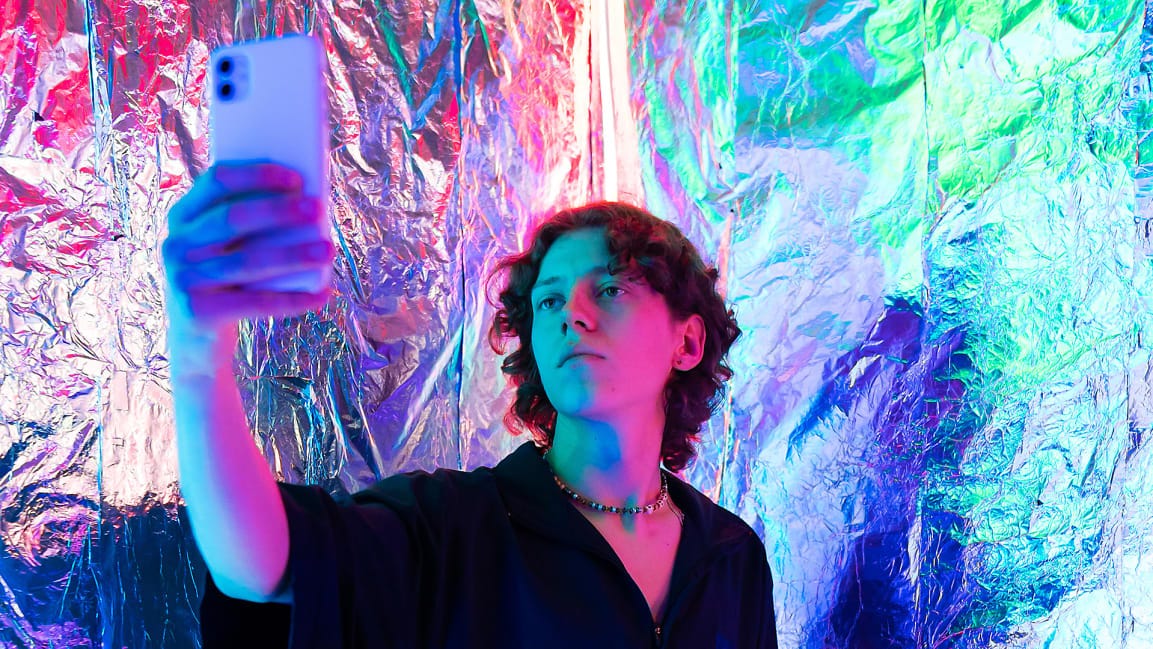Iterate Weekly - Issue 64
This week we're all moving to Remotevilles, Gen-Z is opting-out of college, Oura ring starts tracking your workout heart rate, Bruce Munro's Sensorio art exhibit, and The Daily Jay with Jay Shetty!
Welcome to issue 64 of Iterate Weekly!
Just a reminder that you can always reply to this email or leave a comment on the web version. I read all of them, and I appreciate the feedback, questions, and insights from all of you.
Let’s jump into this week’s stories.
🤖 Tech
Should You Move to a Remoteville?
Here’s an interesting story from TheFutureParty that falls into both the tech and environment categories. It’s all about the rise of location-independence and a new term I just heard for the first time, Remoteville.
A Remoteville is basically a smaller city that rises in population due to an influx of remote workers. The California city of Stockton is mentioned as a possible Remoteville in the vicinity of Silicon Valley.
In some instances, the infrastructure for these new cities may not even be installed yet. It’s essentially a clean slate to develop roads, schools, and things like retail stores and hospitals in a way that makes sense. A freedom that isn’t always possible when moving to larger cities that are set in their ways.
While I’m not sure I’d consider myself living in a proper “Remoteville” as the article defines it, my wife and I did feel comfortable moving to a place with a relatively easy commute to San Francisco if we need to do it from time to time. We’re closer to traditional office hubs than Stockton, but far enough that a daily two-way commute would likely wear on us.
So far, I’m very pleased with our remote arrangement and can see the idea of Remotevilles really taking off in the next few years whether there is a pandemic or not.
Anyone already feel like they’re living in a Remoteville?
🎓 Education/Productivity
Gen-Z Doesn’t Care About College

It may not come as much of a surprise, but new research is proving that young adults considered to be in “Gen Z” are putting less of an importance on obtaining a 4-year college degree.
As of January 2022, only 51% of Gen Z teens are interested in pursuing a four-year degree, down from 71 percent in May 2020, according to a recent study by ECMC Group. And over two years, there was a 6.6% decline in total undergraduate enrollment between fall 2019 and fall 2021.
You could say that the pandemic has maybe tainted the experience of living crammed into communal dorm rooms for four years with exorbitant room & board costs. And this generation has seen their parents and older siblings deal with the ongoing burden of student loan debt. It’s a real problem than can get in the way of other financial goals.
Plus, Gen Z is considered the first age group to have grown up with the iPhone and almost instant access to information, including non-traditional education. Companies like Coursera, Khan Academy, and (to a lesser extent) my old company CreativeLive are giving students access to free or low-priced education that previous generations could only dream about.
It’ll be interesting to see how traditional 4-year institutions change and adapt to this new preference. I’m sure many will fail miserably to connect with this new generation, but the truly great schools will find their niche and do everything they can to remain desirable.
Anyone personally seen this shift in education firsthand?
♻️ Health & Environment
Oura Ring Adds Workout Heart Rate Feature
I’ve been wearing an Oura Ring on my finger pretty much everyday for the past 2+ years. Overall, I’m pretty pleased with my experience. But I’m also excited for the many long-promised new features that are finally starting to rollout after several delays.
One great new feature is the ability to calculate workout heart rates.
Yeah, this may seem like a pretty basic feature, but the Oura ring has been lacking it since its launch. The ring is constantly monitoring your heart rate but until now it hasn’t been able to pull out specific workout heart rate sessions.
It’ll work like pretty much any other high-tech heart rate sensor. Just start a new workout from within the Oura app, and the sensor in the ring will give more detailed accounts of your heart rate during that workout window. Theoretically, it should give you another data point to find the right balance of pushing yourself hard enough, but not too hard during your daily walks, runs, or bike rides (potentially more sports to come in the future).
I’ll report back once I’ve been able to properly assess the accuracy of the workout heart rate compared to a more traditional watch or chest strap sensor. I am wondering how much this will impact the battery life of the ring. While it charges quickly and will last about 5-7 days, it’s still a ring that can be tricky to pull on and off especially if your fingers swell during intense exercise.
Anyone else using an Oura ring and excited about this new feature?
🛍 Grab Bag
Bruce Munro: Light at Sensorio Art Exhibit
This one could also fall into a personal recommendation, but It also fits in the grab bag.
If you find yourself in California (both NorCal and SoCal folks alike can make this happen, finally something to bring us together!) I highly recommend you check out the Sensorio exhibit by Bruce Munro in Paso Robles.
As if the natural beauty of Paso Robles isn’t enough, this is a display of thousands of color-changing lights dotting a meadow like wildflowers. Pictures and description really do not do it justice.
Supporting art like this is always important. With food trucks, live music, and a very family-friendly atmosphere, it really is the perfect way to spend a summer evening. If you’re passing through the area this summer, be sure to get tickets before it sells out. This particular iteration will be running Thursday-Sunday through September 5th with potential new dates in the future.
💬 Quote of the Week
“The true secret of happiness lies in taking a genuine interest in all the details of daily life.”
- William Morris
🎧 Content Recommendation
The Daily Jay
I’ve written about my love for the Calm Meditation App in the past. I still use the app everyday and it’s my meditation method of choice.
But I was honestly surprised by how much I’ve enjoyed listening to Calm’s “Daily Jay” series with Jay Shetty.
It’s a daily podcast/guided meditation session that typically lasts 7-10 minutes. Shetty will introduce a topic from the world of mindfulness and make it feel tangible and obtainable. He brings in experience from his time as a Monk in India and illustrates how to blend ancient wisdom with modern technology. It’s a lot like what I try to provide with my writing.
And yes, I’ll admit that I was surprised at the quality of the content after listening for several months. When you see Shetty’s smiling face and piercing eyes, you just feel like he’s mesmerizing you with that creepy guru energy. And whenever your podcast is just your name following the word “daily”, I’m going to be skeptical.
But no, I think he really knows his stuff. Whether you consider it to be “real” meditation or just a 10-minute entertaining podcast, it’s absolutely worth checking out.
Thanks for reading, I’ll see you next week!
P.S. - Are you looking for a coach? I’m looking to work with some potential new clients and would love to help you out. Click here for more info!





